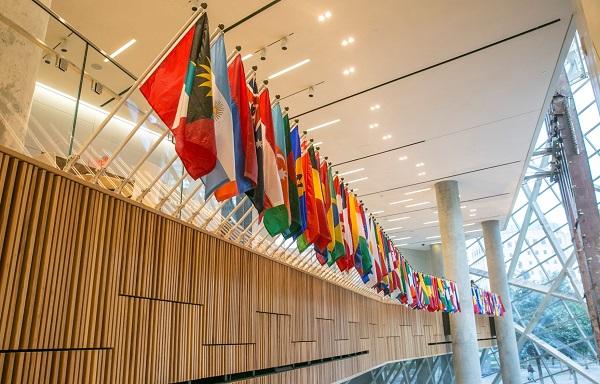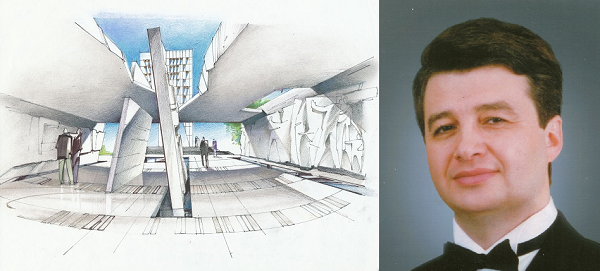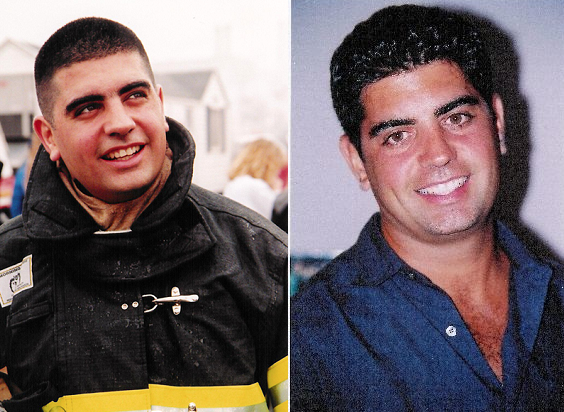Make a donation to the museum
Exploring American Diplomacy in the Post-9/11 Era
Exploring American Diplomacy in the Post-9/11 Era

On the heels of the 74th session of the UN General Assembly, considered diplomacy’s largest stage, the 9/11 Memorial Museum will host the public program “American Diplomacy in a Post-9/11 Era” on Monday, October 7, starting at 7 p.m.
Diplomacy has long been an essential tool in the American national security playbook, and this proved to be especially true in the aftermath of 9/11. Today, a new era of diplomacy poses fresh challenges for American diplomats. More than 30 U.S. ambassadorships are currently vacant, secure diplomatic cables are increasingly susceptible to hacking, and nationalism and isolationism are on the rise in Europe and elsewhere. Additionally, recent years have seen a reversal of several longstanding U.S. diplomatic stances.
The 9/11 Memorial Museum is delighted to host Ambassador Ronald E. Neumann, President of the American Academy of Diplomacy, to discuss the future of American diplomacy. As the former U.S. ambassador to Afghanistan, Algeria and Bahrain, Ambassador Neumann is also a former deputy assistant secretary of state. A career member of the Senior Foreign Service, Ambassador Neumann served in Baghdad from February 2004 with the Coalition Provisional Authority and then as Embassy Baghdad’s liaison with the Multinational Command, where he was deeply involved in coordinating the political part of military actions. Other assignments during his career have included stints in Abu Dhabi, the United Arab Emirates, Yemen, Senegal and Iran, among other places.
Ambassador Neumann supported the research and writing of a May 2019 report, published by the American Academy of Diplomacy, titled “Strengthening the Department of State.” This report states that effective American diplomacy demands a strong Department of State to execute it. The report offers the Department recommendations for how to enhance its structures and processes to better identify, recruit, train, support, equip and protect its people in the Foreign and Civil Service. The full report can be accessed here, and will provide an insight into some of the topics that will be discussed during Monday’s public program.
Also participating in this program is Ambassador Gérard Araud, who is the former French ambassador to the United States and the United Nations, as well as director-general for political and security affairs of the French Foreign Ministry. He is a trustee of the International Crisis Group. A career diplomat, he became ambassador of France to the United States on Sept. 18, 2014.
Ambassador Araud previously held numerous positions within the Ministry of Foreign Affairs and International Development, notably including director for strategic affairs, security and disarmament (2000–03), ambassador of France to Israel (2003–06), director-general for political affairs and security (2006-09) and, most recently, permanent representative of France to the United Nations in New York (2009–14).
Over the course of his career, Ambassador Araud has developed specialist knowledge in two key areas: the Middle East and strategic and security issues. As regards the latter, he was the French negotiator on the Iranian nuclear issue from 2003 to 2006. In New York, at the Security Council, he notably contributed to the adoption of resolutions on Libya (1970 and 1973), Côte d'Ivoire (1975), the Democratic Republic of Congo, Mali and the Central African Republic, and he participated in debates on the Syrian and Ukrainian crises.
The third participant in Monday’s program is Ambassador Peter Ammon, who served as German Ambassador to the United Kingdom (2014–2018) and to the United States (2011–2014) and as State Secretary (U.S. equivalent is Deputy Foreign Secretary) at the German Foreign Office in Berlin (2008–2011). In 2007 and 2008, Ammon was appointed German Ambassador to Paris.
His prior diplomatic career included postings to London, Dakar, New Delhi and Washington, D.C. A staunch advocate of free trade, Ammon worked as Director General for Economics at the German Foreign Office from 2001 to 2007, helping German "Mittelstand" companies build a global presence. During this time he was tasked to prepare the G7/8 world economic summits for German chancellors Gerhard Schröder and Angela Merkel. While in London, Ammon's agenda was shaped by the British Brexit referendum to leave the EU.
Due to unforeseen circumstances, we regret to inform you that Ambassador Ronald E. Neumann is no longer able to participate in tonight’s program, American Diplomacy in a Post-9/11 Era. We apologize for any inconvenience.
Join us on Monday, October 7, at 7 p.m. to hear ambassadors Neumann, Araud and Ammon discuss the future of American diplomacy. Reserve tickets here.
By Ruth Dewa Ayu, Assistant Director of Public Programs, 9/11 Memorial & Museum
Previous Post
Architectural Drawing Created by Arkady Zaltsman Now on View in the Memorial Exhibition

Now on view in the 9/11 Memorial Museum’s memorial exhibition is Arkady Zaltsman’s architectural drawing donated to the Museum’s collection by his wife and daughter.
Next Post
Remembering Sergio Villanueva, a Firefighter Whose Smile "Filled The Room With Love"

“I had one picture left in the camera,” she reminisced. “And I can still so vividly remember looking at him through the camera and saying, ‘Smile baby, this is the last picture.’”